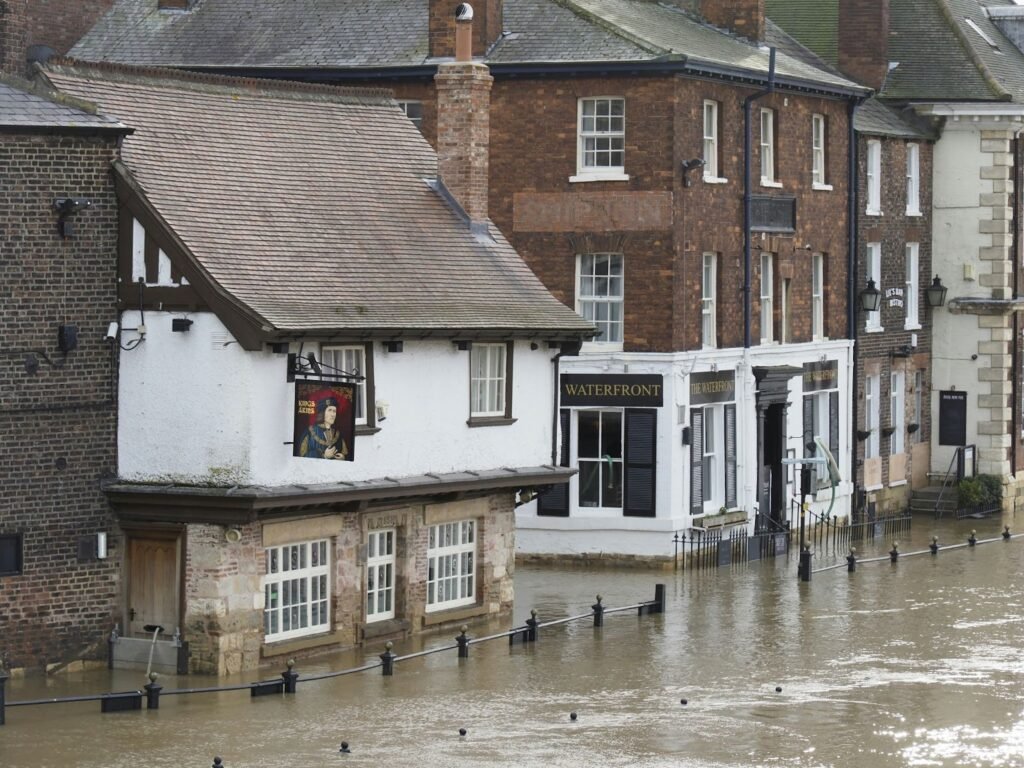Basement Flooding: A Preventable Disaster
Basement flooding is a common occurrence that can cause significant damage to homes and belongings. While many homeowners are aware of the problem, they may not understand the underlying causes or the preventive measures they can take. This article will delve into the various aspects of basement flooding, providing essential information and practical tips to protect your home.
Understanding the Causes of Basement Flooding
There are several factors that can contribute to basement flooding:
Heavy Rainfall: Excessive rainfall can overwhelm the drainage system, leading to water infiltration through cracks or gaps in the foundation.
Ground Water: High groundwater levels can push water into the basement, especially if there are cracks or weak spots in the foundation.
Sewer Backup: If the sewer system becomes overwhelmed, wastewater can back up into the basement, causing severe damage.
Plumbing Leaks: Leaky pipes or fixtures can lead to water accumulation in the basement over time.
Poor Drainage: Inadequate drainage around the foundation can contribute to water buildup and infiltration.
Signs of Potential Basement Flooding
Recognizing the early signs of basement flooding can help you take proactive measures to prevent further damage. Watch out for the following indicators:
Musty Odor: A foul smell in the basement, often accompanied by mold or mildew growth, is a common sign of water intrusion.
Water Stains: Look for dark stains on walls, floors, or ceilings, which can indicate past or present water leaks.
Efflorescence: White, powdery deposits on walls or floors are often a sign of salt buildup due to moisture.
Dampness: If the basement feels unusually damp or humid, it may be a sign of water infiltration.
Sump Pump Problems: A malfunctioning sump pump can be a major cause of basement flooding. If your sump pump is running frequently or making unusual noises, it may need attention.
Preventing Basement Flooding: Tips and Strategies
Regular Inspections: Conduct regular inspections of your basement to identify potential problems early on. Check for cracks in the foundation, leaks in pipes and fixtures, and signs of water damage.
Maintain Drainage Systems: Ensure that your gutters, downspouts, and drainage systems are clean and functioning properly. Regularly clear debris and obstructions to prevent water buildup.
Improve Foundation Drainage: Consider installing a French drain or perimeter drain around your foundation to help divert water away from the basement.
Upgrade Sump Pump: If your current sump pump is outdated or unreliable, invest in a high-quality model with backup power.
Seal Cracks and Gaps: Caulk or seal any cracks or gaps in your foundation or basement walls to prevent water infiltration.
Install a Backwater Valve: If you live in an area prone to sewer backups, consider installing a backwater valve to prevent wastewater from entering your basement.
Protect Against Surface Water: Create a berm or swale around your property to divert surface water away from your foundation.
Insulate and Ventilate: Proper insulation and ventilation can help prevent condensation and moisture buildup in the basement.

Dealing with Basement Flooding: Cleanup and Restoration
If your basement has already flooded, it’s important to take immediate action to minimize damage and prevent further problems. Here are some steps to follow:
Safety First: Turn off the electricity and gas to the basement to avoid electrical hazards or gas leaks.
Document Damage: Take photos and videos of the flood damage for insurance purposes.
Remove Water: Use a wet-dry vacuum or sump pump to remove as much water as possible.
Dry Out the Area: Use fans and dehumidifiers to dry out the basement as quickly as possible.
Clean and Disinfect: Clean and disinfect affected surfaces to prevent mold and mildew growth.
Repair or Replace Damaged Items: Repair or replace any damaged furniture, appliances, or belongings.
FAQs
What are the most common causes of basement flooding?
Heavy rainfall
High groundwater levels
Sewer backup
Plumbing leaks
Poor drainage
How can I tell if my basement is at risk of flooding?
Musty odor
Water stains
Efflorescence
What preventive measures can I take to protect my basement from flooding?
Regular inspections
Maintain drainage systems
Improve foundation drainage
Upgrade sump pump
Seal cracks and gaps
What should I do if my basement floods?
Safety first
Document damage
Remove water
Dry out the area
Can I prevent basement flooding if I live in a flood-prone area?
Yes, there are several preventive measures you can take, including installing a sump pump with a backup power source, sealing cracks in the foundation, and improving drainage around your property.
How can I prevent mold and mildew growth after a basement flood?
Dry out the basement as quickly as possible using fans and dehumidifiers.
Improve ventilation in the basement to reduce humidity.
Is basement flooding covered by homeowners insurance?
Most homeowners insurance policies cover basement flooding due to natural disasters such as heavy rainfall or sewer backup. However, it’s important to review your policy carefully to understand your specific coverage.
Can I prevent basement flooding if I live in a new construction home?
Yes, even new homes can be susceptible to basement flooding. Builders often take measures to prevent flooding, but it’s still important to be aware of the risks and take proactive steps to protect your home.
What is the cost of basement flood damage?
The cost of basement flood damage can vary widely depending on the severity of the flooding, the value of your belongings, and the cost of repairs or reconstruction.
Are there government programs available to help homeowners affected by basement flooding?
Yes, in some cases, government agencies may offer financial assistance or other resources to homeowners affected by basement flooding. It’s important to contact your local emergency management agency or insurance company for more information.
Conclusion
flooding can be a devastating experience, but with proper prevention and preparation, it can be avoided or minimized. By understanding the causes of basement flooding and implementing effective prevention strategies, you can protect your home and belongings from this common disaster.
To read more, click here.














Post Comment